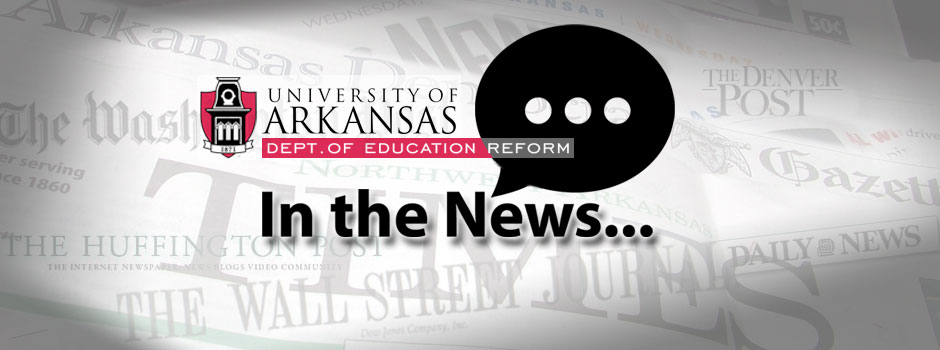
07 Jan University of Arkansas Researchers Recycle Debunked Voucher Claims Regarding Crime Reduction
Key New NEPC Standalone Press Release Takeaway: Report uses unwarranted causal language throughout, while cheerleading for “Education Savings Account” legislation.
BOULDER, CO (THE WIRE PRESS) – A new report from the University of Arkansas Department of Education Reform claims that Texas voucher legislation would reduce crime and thereby save the state a cumulative $194 million by the end of 2035. This claim is not warranted and has, in fact, already been discredited.
The report’s calculations arise from another University of Arkansas analysis, by the same authors. The Arkansas researchers had argued that some subgroups of voucher-receiving students in Milwaukee, Wisconsin were less likely to commit crimes as adults. That earlier analysis was reviewed in April 2016 by Clive Belfield, Professor of Economics at Queens College, City University of New York.
There exist multiple errors and limitations in the two Arkansas analyses, but perhaps the most important are the poorly grounded claims regarding causation. As Professor Belfield explained, no causal inferences can be drawn from the type of data and analyses used by the researchers. This means that the researchers cannot responsibly make claims about “results” and “impacts”, as they do in their Texas report.
Professor Belfield observed that, far from establishing a causal relationship between voucher program participation and a reduction in criminal behavior, the Arkansas researchers had not even established meaningful and consistent correlations. As Belfield pointed out, one valid interpretation of the data and analyses presented in the earlier report is that vouchers and crime are, in fact, not correlated.
Instead of engaging with Professor Belfield’s critique of their Milwaukee report, the Arkansas authors used the unconvincing results of that study, plugged in crime numbers from Texas, and estimated that if that state’s legislators were to create a type of voucher program called “Education Savings Accounts” they would (19 years from now) have, in the aggregate, saved their state almost two-hundred million dollars.
“This is a textbook example of garbage-in, garbage-out,” said Professor Kevin Welner of the University of Colorado Boulder, who directs the National Education Policy Center. “A figure derived from a study that does not allow for causal inference cannot then be brought back from the dead and magically support a causal inference in another study six months later. This sort of zombie causation could not possibly be of use to lawmakers looking for trustworthy information.”
Find Professor Belfield’s review on the web at:
http://nepc.colorado.edu/thinktank/review-school-choice
Find the recent Arkansas report on the web at:
Whether to Approve an Education Savings Account Program in Texas: Preventing Crime Does Pay
Find Documents:
Press Release: http://nepc.info/node/8408
The National Education Policy Center (NEPC), housed at the University of Colorado Boulder School of Education, produces and disseminates high-quality, peer-reviewed research to inform education policy discussions. Visit us at: http://nepc.colorado.edu


No Comments